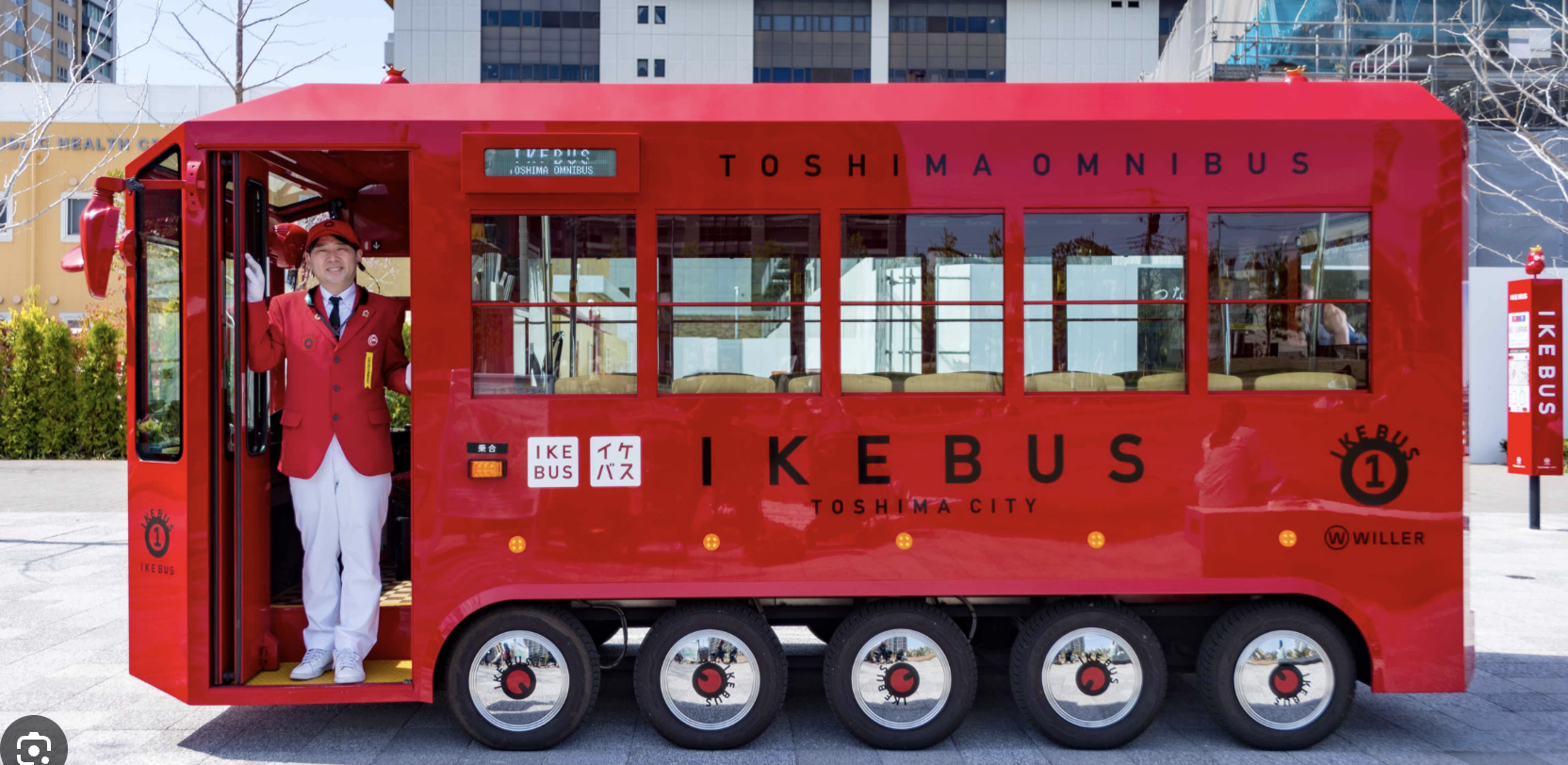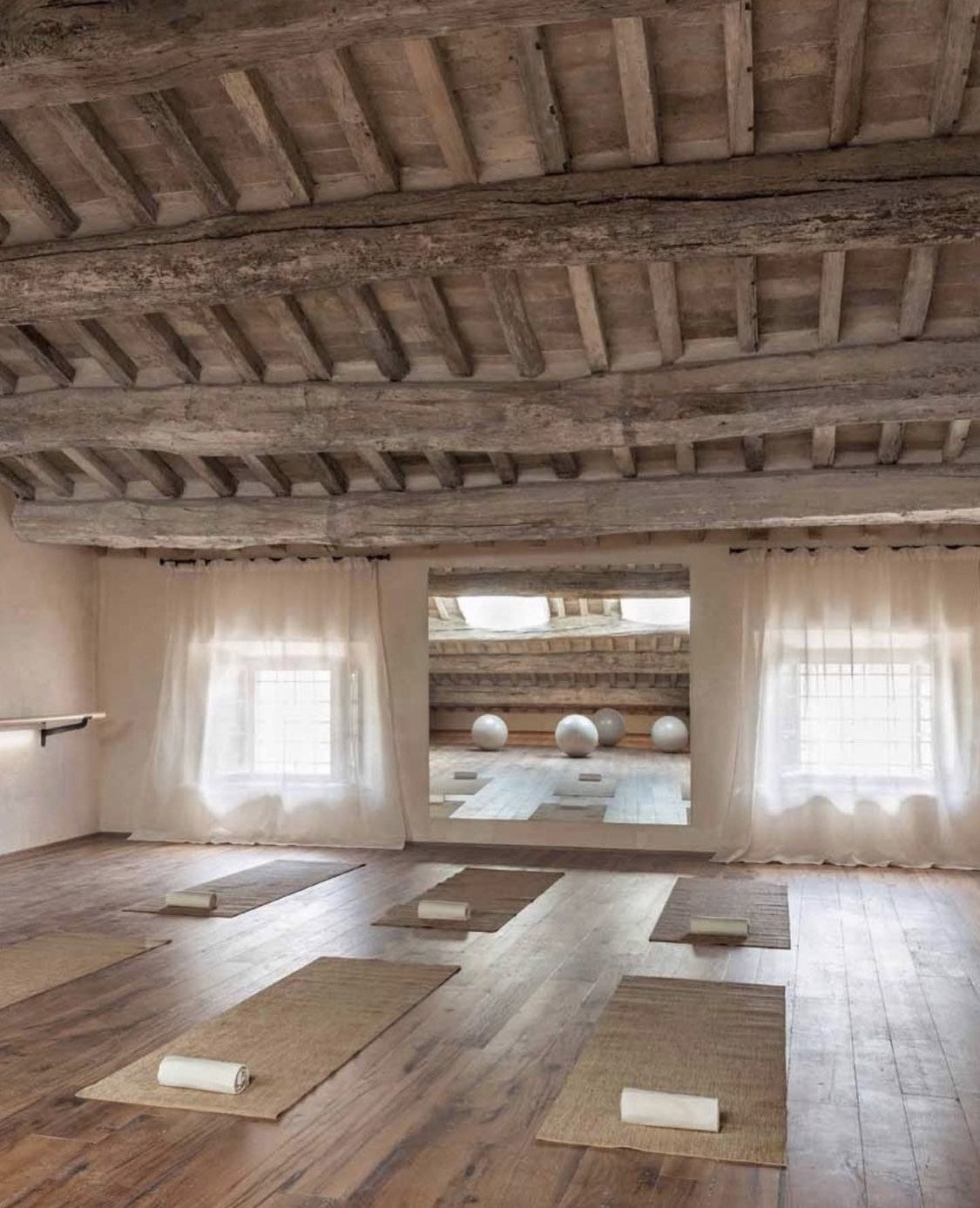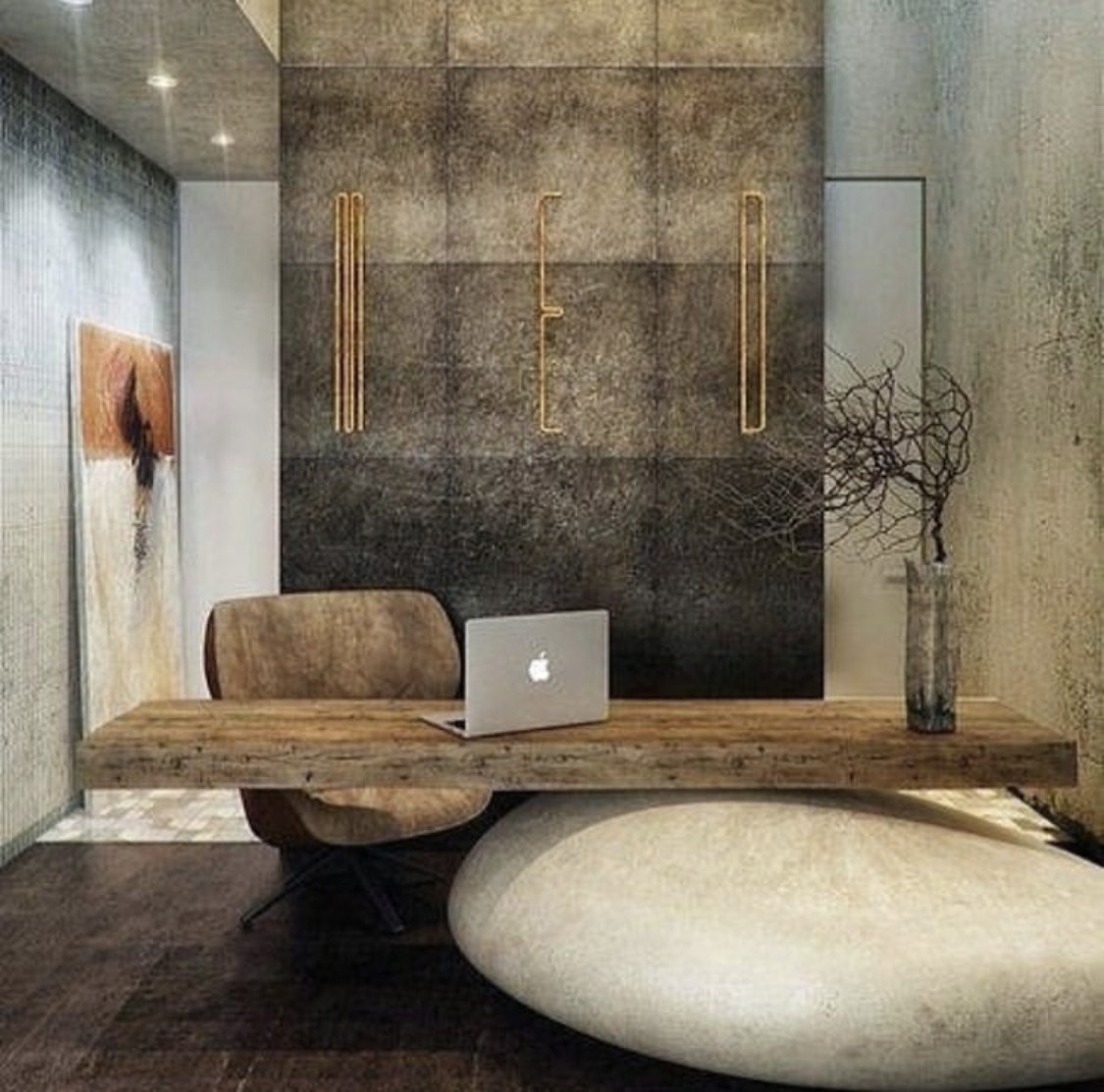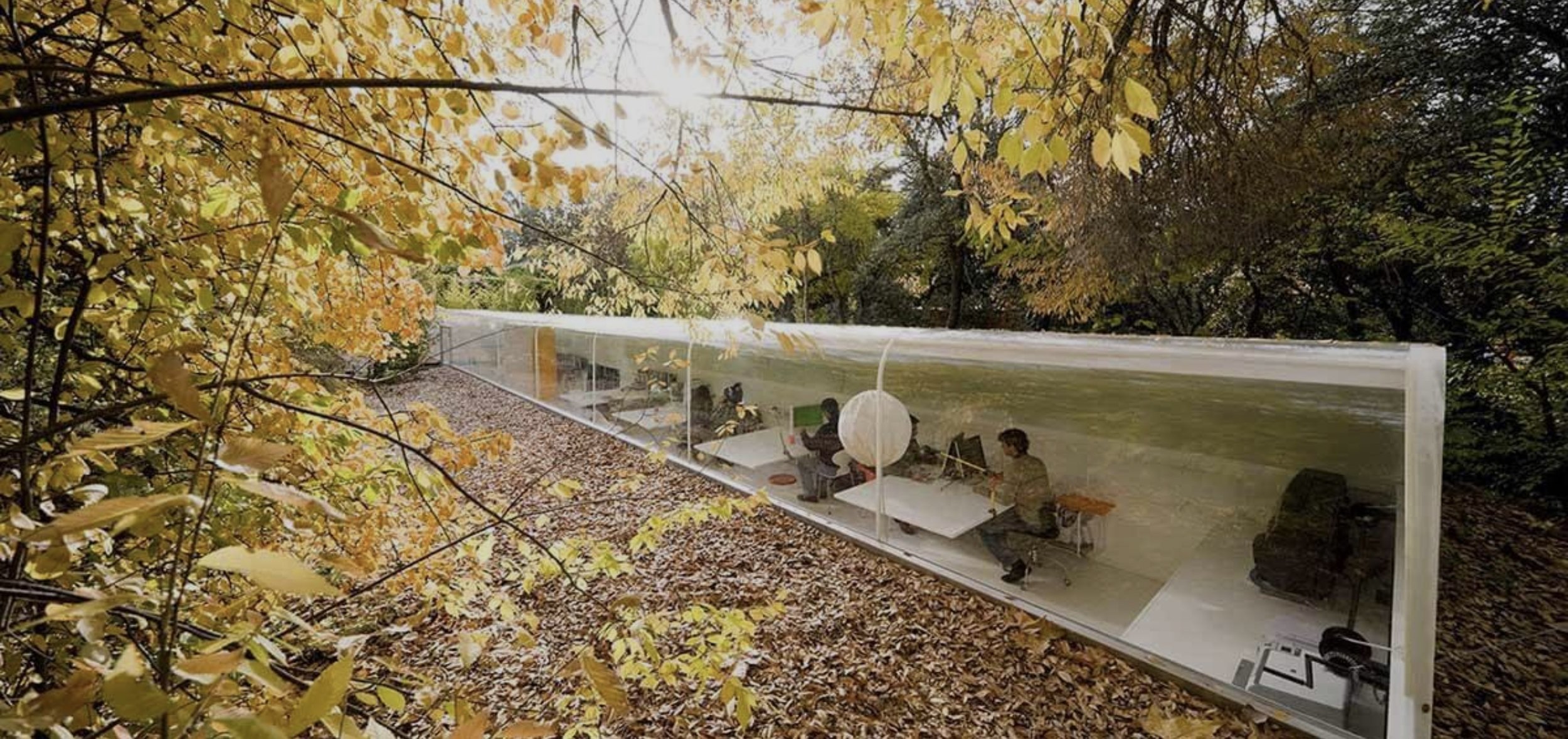
The blog has a new home: Introducing The Future of Work Studio
The Future of Work Studio is a place to stop, take a deep breath, and ask different questions. There are no anxiety-inducing mantras about getting up at 5 am to hustle as hard as you can, clearing out your inbox using rule-directing software programs, or undertaking nightly review sessions at 10 pm to see how many boxes you ticked off the Gantt chart today.
In my posts there, I’ll cover not only the trends and latest research on everything to do with work and the workplace but also what to do about it. You’ll find evidence-based articles and insights that allow you to make sense of the latest developments and guides to make changes in your work and life.
I’ll share more personal insights than in my publicly published articles and would love to see you there.

Interesting cities in the new world of work
Amongst the fraught arguments on post-pandemic work flexibility is an underlying fear. What will happen to our cities if workers only go to the office a few days a week? Humans have flocked to cities for centuries prior to the industrial age birth of the modern office tower. “A great city is an inventory of the possible.” wrote Rene Descartes in the 17th century. A city is a place where the ability to create a range of different futures for ourselves is made manifest. But a city that consists largely of closed-off office buildings broken up by chain food outlets is unlikely to fulfill Descartes’ ambition. And it’s also very boring. A city designed for everyone to commute in and pour out again at the end of the day doesn’t make for a very interesting or sustainable place.
The last few years gave us a one-in-a-hundred-year opportunity to redesign work. It seems like as good a time as any to apply this new lens to our cities. Making these changes requires us to adopt systems thinking and to understand the intricacies and interrelationships that form the fabric of a place.

Why we should focus on work states instead of work place
With all the activity in the media in recent weeks around flexible work and working from home, you could be forgiven for thinking that it was all some disastrous experiment. National Australia Bank CEO Ross McEwan has ordered senior managers back into the office five days a week. And in his latest salvo on working from home, Elon Musk suggested that employees who work outside of the office are morally dubious.
I think the reasons for wanting people back in the office aren’t the ones that are being trotted out almost daily in the media. But more on that later.
Since completing a PhD on the topic in 2017, I’ve continued to empirically study how our physical environments influence our psychological and physical states.
It’s hard to feel inspired or creative in a noisy open-plan office with rows of the same desks and chairs. Background noise, noisy coworkers, loud telephone conversations, impromptu stand-up meetings in the middle of the office, and interruptions make it very difficult to conduct work that requires concentrated effort.
Additionally, my research colleagues and I found a significant causal relationship between open-plan office noise and physiological stress. Our study in experimentally controlled conditions using heart rate, skin conductivity, and AI facial emotion recognition showed that negative mood increased by 25% and physiological stress by 34%.
This may be one of the reasons that “work from home” has been the most searched-for term on Seek for months. That, and not having to commute for hours every day.

Feeling flat now you’re back to work? A post-holiday slump is normal, but these clues signal it’s time for a new job
If you’ve found yourself feeling a bit flat after returning to work (or outright hating your job) this year, you’re not alone. #BackToWork is trending for Australia on Tik Tok, with plenty of users lamenting the return to the office. A growing body of research also shows this feeling is pretty common.
But while there’s nothing new about the return-to-work blues, few companies have any strategy to facilitate readjustment to work after vacation.
So what does the research say on this issue, and what could employers do to address it?

Digital nomad visas offer the best of two worlds: what you should know before you go
Imagine starting your work day with fresh coconut juice perched by your laptop as you gaze over the ocean or a tropical rainforest.
It’s the sort of thing to fantasise about during long, tiresome commutes and days in a claustrophobic, noisy office.
But so long as you have the right type of job, and an accommodating employer (not Elon Musk), it could be your reality.
The war for talent is no longer just between companies. More than 40 nations or territories now offer “digital nomad” visas to attract those able to be employed in one country while living, and spending their income, in another.
Fancy the beach? A bunch of exotic islands are on the list. Prefer tropical forests? Try Brazil or Costa Rica.

Working from anywhere is now a reality
Amidst the global war for talent, the ability to choose where you live, and work is central to the employee value proposition being offered by corporates. The war for talent is no longer just between companies however, entire countries are now getting in on the act, angling for the best talent. Bali has recently introduced a digital nomad visa where you can now live and work in Bali for up to 6 months (5 years under consideration) tax free.
I spoke about this trend on ABC news (watch here) and how foreigners are flocking to Bali in droves, escaping the commute.
And it isn’t just Indonesia, more than 25 countries or territories have launched digital nomad visas according to a new Migration Policy Institute report.Bermuda introduced a Work from Bermuda program two years ago and it has brought more than $28 million dollars into the nation’s economy according to Bermuda’s Ministry of Economy and Labour. The whole landscape of work has shifted, and research has shown it’s not going back. Employees are voting with their feet, flocking from companies who refuse to embrace the new world of work. We have a chance to recalibrate the way we are working and living to be profoundly better.

Escaping a sea of grey cubicles
Like many of you, ‘work’ for me has taken various forms over the course of my life. I’ve had precarious work, no work, working for myself and working for faceless corporates who can’t remember my name. I’ve been a waitress, a stable hand, and a “cast member” in Willy Wonka’s Chocolate Factory Shop in a theme park where I listened to ‘that’ part of the movie hundreds of times in a shift. And ate a lot of chocolate.
I’ve been a divisional manager, a C-suite member, and a Board Chair. I’ve had my own business. I’ve had jobs where I can’t wait to leap out of bed, like Steven Spielberg, too excited to eat before I dive into my day. I’ve had others where I could barely bring myself to get out of bed. Where the thought of even going to the office left me wondering if I was deeply depressed. I probably was.

From Surviving to Thriving: Crafting work to support wellbeing
My last blog post on a broken system of work and the tragic suicide of a 27-year-old employee at Ernst and Young sparked a groundswell of discussion. And turned into an Op-Ed for Australia’s largest media company. I had been unsure about hitting post when I wrote it.
I felt strongly about the issues with the design of work and the workplace that I had observed for decades, but I had rarely been so outspoken about them. Certainly not in a national media outlet. While I was grateful to have the opportunity to reach a wider audience, I also felt mildly panicky when I heard NewsCorp wanted to publish it the very next day.
For some strange reason (perhaps all those writing books that encourage you to write by telling you to imagine you are just writing for yourself), writing on the blog feels more personal. I worried I would get hate mail from angry managers who wanted to keep things the way they had always been. Be present in the office, work whatever hours are asked of you, and don’t complain.

Forget hybrid, the system is still broken.
Stanford economist Nick Bloom has just released data showing that in the US work from home has stabilised at 30% of work days, a 6-fold jump pre-pandemic, saving 200 million hours and 6 billion miles of commuting a week.
This is great news. However, it isn’t enough to just change the location of where we work.
At the conference last week, I had a conversation with an Ernst and Young Director, and a senior manager from another consulting firm. The EY Director reported that she had been working 65 hours a week for at least a year.
She worked every day, night, and weekend.
This Director wasn’t even in audit where the intense reporting period in audit firms is often used as a justification for the long hours. The other consultant asked her whether this expectation would go up once she became partner. The answer was yes. The EY Director commented that she was figuring out all the things she will have to stop doing or give up in the rest of her life in order to take that next step up the rung.
This conversation is chilling in light of the tragedy this week. It also indicates that indeed, WFH aside, not enough is changing. If you are expected to work 65 hours a week or until midnight in order to meet your KPIs, where you do it isn’t going to make much difference to the negative effects on your physical and mental health.
If working 65 hours a week is still the entry ticket to participate high up the career ladder, then we have really made no progress at all.
Ernst and Young reported global revenues of US$40 billion dollars in the 2021 financial year. Just a few weeks ago, Ernst and Young Australia announced revenue growth of 19% to $2.75 billion for the 12 months to 30 June 2022.
Such figures perfectly exemplify the sentiment behind the rise of the anti-work movement (one of the top 5 most popular articles on BBC Worklife this year). First brought to light in a New York Times piece in August 2021, the anti-work movement’s poster child was a Chinese factory worker who quit his 9-6-6-day a week job, drew the curtains, and got into bed to ‘lie flat as a protest”. The now global trend is seen as a stand against peak capitalism, of the production of excess.
But people aren’t rejecting work outright. They are instead rejecting the dehumanisation of it. Rejecting decades of being asked to leave anything about themselves and their life that didn’t relate to work at the door when they clocked in.

The 4-day or 4-hour work week? How to rethink what you want from your job.
This year is the 15th anniversary of the publication of Tim Ferriss’s multi-million New York Times bestseller, The 4-Hour Work Week. The book both delighted and confused people who fantasised about the possibility but wondered how they could possibly transition their existing work week into only four hours. But despite the title, Ferriss commented that it was never about working only 4 hours a week.
Instead, the book shone a light on a work existence that leaves so many despairing. Rather than waiting till retirement to do the things we wanted, Ferriss showed that it was possible to make changes now so we could both live and work. It was an enticing but unrelatable idea for many at the time.
The concept hit a nerve. We imagined what life might look like if it didn’t primarily involve commuting to an office, commuting home again to cook dinner, spending just a few minutes with loved ones before going to bed only to start all over again the next day.
Now, after a global pandemic and the seismic shift around work, the enticing alternative Ferriss proposed is now a reality. We can go to Brazil for 6 months to learn the tango as he once did. But unlike in 2007, we can now do so while keeping our jobs and living in that dreamy villa near the beach.
Amidst the global war for talent, the ability to choose where you live and work is central to the employee value proposition being offered by corporates. Companies like Airbnb and Atlassian have set remote work policies that only require staff to come to the office quarterly, or even a few times a year. Staff are encouraged to move to locations that suit their needs and interests, whether just for a few months or for good.
But not everyone wants to learn the tango or martial arts in a far-flung locale. And, for a whole host of reasons, not everyone can, even if they want to.
So whether it is a 4-day or 4-hour work week, where do we actually start? It’s all well and good wanting to make a change to the job we have or where we do it, but what if we aren’t sure what we want to do next?

Do as I say, not as I do. Why are some people so upset about flexible work?
Few things upset employees more than organisations saying one thing, yet doing another. We value employee well-being but (insert contradiction here). We put our employees first but, (you get the idea). This week, a new angle of attack emerged in the ‘let’s go back to the good old days way of working’ conversation.
Why is there so much hysteria about making people go back to a work setting every day that research shows wasn’t that effective on a whole host of fronts - productivity, well-being, efficiency, sustainability, innovation and more?
Somewhat surprisingly, joining the chorus of hysteria about new ways of working this week were two prominent figures, Stern marketing professor Scott Galloway, and bestselling author Malcolm Gladwell. And, appearing to have given up on productivity as an objection, the messages were “you won’t get promoted” if you WFH, and even “you are in your bedroom living a life that isn’t contributing to anything.”
Having failed fairly early on in the pandemic with the argument that working from home wouldn’t work (and that people would just watch Netflix all day), there are those who appear dissatisfied that people are continuing to work from home happily and productively. Perhaps the opponents don’t know how to navigate this new world of work, or what it means for property trusts, control, and the established order.
Various companies tried to lure workers back with pizza parties or outright threats of being sacked. Elon Musk recently ordered all Tesla employees back to the office, proclaiming that anyone who wants to work flexibly is lazy and not committed to their job. Old ways of thinking and managing die very hard it seems.

We are working from home (again). 7 tips to boost wellbeing and productivity
Telstra and Westpac are the latest companies to encourage staff to work from home, just a few months after some of them returned to the office.
Working from home for extended periods can leave employees feeling socially and professionally isolated. When people work from home, they have fewer opportunities to interact and acquire information, which may explain why remote workers feel less confident than their office-based counterparts.
Researchers also report working from home (WFH) is linked to negative physical health outcomes such as increased musculoskeletal pain and weight gain, as well as exhaustion.
If you are still working from home or your employer has just reinstated it, the good news is there are evidence-backed tips that can help overcome the challenges. Here are seven tips to navigating the coming weeks and months.

Unlimited annual leave. And lives of quiet desperation.
Joy is a precious resource. So is creativity and inspiration. When I ask senior managers what they are passionate about, or when was the last time they did something that left them feeling joy, the resounding response is silence. This silence is often broken after a few moments of reflection by an assertion that they don’t remember the last time they had time to think about what they felt passionate about. Or what brought them joy.
Now seems as important a time as ever to actually do something differently. To stop applying bandaids or inventing distractions that don’t help the actual problem. To interrupt the rise of people living lives of quiet desperation.

How to create a work from home space that works
While Churchill often worked from bed (and held cabinet meetings there), for most of us it’s not a workable or particularly productive option. Don’t get me wrong, on days when my kids were homeschooling during Covid and the dog was barking at a seemingly invisible enemy, working from bed seemed very appealing. I would also find myself daydreaming of the workspaces of people like Neil Gaiman who often books himself into a hotel to get a novel finished.
Gaiman also has a gazebo at the bottom of his beautiful garden that he meanders off to each morning - coffee, fountain pens, and Leuchtturm notebooks in hand. Imagine, I would think, after what seemed like the 15th garbage truck of the day, of becoming one of the writers and digital nomads who work from exotic villas in the jungle or cottages by the sea.
But before you feel overly depressed by these unrelatable examples, let’s not forget that Stephen King wrote Carrie in his laundry room. And some of history’s greatest philosophers have shared our WFH struggles. In a letter to Felice Bauer in 1912, Franz Kafka wrote "time is short, my strength is limited, the office is a horror, the apartment is noisy, and if a pleasant, straightforward life is not possible then one must try to wriggle through by subtle maneuvers."
So how do we create a workspace at home that actually works?

What does the ideal workplace look like?
I am asked at least once a day what the ideal workplace looks like. Is it a private office? Something that looks like our homes? A Disney-like playground full of zones for everything from rollerblading to meditation depending on how the mood takes us?

The presenting problem or the actual problem?
In organisations there are any number of issues that rear up, demanding attention, clamoring for time, resources, and solutions. But often these issues are only the surface problem, not the underlying one.
Giving employees unlimited annual leave to address stress and burnout won’t help if they are operating in a culture where there are insufficient staff, dark triad leaders, or a culture where taking time off confers an unspoken penalty.

How coffee shops can make us more creative
Coffee shops have been called ‘third spaces’, places other than our homes or our offices where we can go to get things done. And long before (centuries in fact), Starbucks laid claim to starting this movement, the coffee houses of the Englightenment were the original coworking spaces. Places to write, think and engage in serendipitous conversation. Isaac Newton worked from the Grecian Coffee House in London (and also dissected a dolphin there).
And underneath the arches in the gothic architecture of Venice’s Cafe Florian which opened in 1720, Proust and Dickens were frequent visitors, along with Nietschze, Cassanova and Charlie Chaplin. Hemingway sat in the sun here feeding the pigeons, watching travellers return from across the Adriatic Sea, the Byzantime Empire and the East.

We don’t want the same things anymore
For many people, the pandemic has changed our definitions of success and our ambition.
It’s not about racing to the top of the corporate ladder anymore. People pleasing. Overthinking. Overcommitting. The scaffolds that propelled us along in our careers and our lives are breaking down.

What can you stop doing?
When things aren’t going well in organizations our natural tendency is to add more.
More meetings, more processes, more milestones, more things to check off. But is that really the source of the problem?
